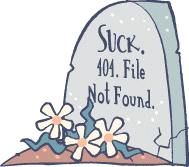Published in 1762, Jean-Jacques Rousseau’s The Social Contract is a non-fiction political/philosophy tome that examines the often precarious balance between liberty and government.
Rousseau’s book has been hailed/vilified as a blueprint for totalitarianism; hailed/vilified as an examination of the need to surrender some personal liberties for the greater good of society as a whole – and, often, this greater good benefits the individual.
Often it does not, so that’s part of the debate.
Rousseau’s book opens – famously – with the following line:
Man was born free, and he is everywhere in chains.
(Ever wonder where Marx got his famous line???)
Rousseau never flinches from this statement, noting how we – individuals – matter little in the pool of individuals that comprise society.
But – as he explains – this is not necessarily a bad thing. Face it, we’re all slaves of several masters, of which government is only one: family (parents, children, relatives, spouses), work, neighbors and so on. Hell, even if living alone – by choice – on a desert island – you’d still be a slave to tides, weather, other environmental factors mostly out of your total control.
Free will – in its purest sense – is just a concept, not a reality.
Government is no different: One gives up some part of liberty to help create a stable society and help safeguard the individual.
Examples (mine, obviously, not Rousseau’s):
- Taxes: We pay taxes for many good reasons (yeah, lots bad, too..): So we have national defense, so when we call the police or fire department they don’t require a credit card before coming out, so our streets are plowed. Yes, the governments (city, state, federal) are taking our money, but there is no way any individual could provide the same amount of service alone.
- Driver’s License: Have to take tests, wait in ungodly long lines and so on, but this is a way of regulating [some of the] nuts off the roads and so on.
- Regulation: The bane of everyone regulated, yet as soon as something goes weird in this country (Enron, S&L; breakdown), all voters are for more regulations of this or that industry. Go ahead, read Upton Sinclair’s The Jungle and tell me regulation is a bad thing…
You get the drift.
We give up some freedoms/monies and gain security, safety and so on.
There are obviously imbalances – I don’t have kids but I have a house. So my property taxes are paying for school for someone else’s kids. The hard part is balancing the usurping of freedoms and government/society power.
But overall it works out, for the most part. Otherwise the “decisions” of the Zoning Boards would be which neighbor has the most guns. That ain’t good for no one…
Nice book report Lee, WTF does this have to do with anything?
Well, this week came the revelations that the Bush Administration has been secretly spying on Americans in America.
Since October, news accounts have disclosed a burgeoning Pentagon campaign for “detecting, identifying and engaging” internal enemies that included a database with information on peace protesters. A debate has erupted over the FBI’s use of national security letters to obtain secret access to the personal records of tens of thousands of Americans. And now come revelations of the National Security Agency’s interception of telephone calls and e-mails from the United States — without notice to the federal court that has held jurisdiction over domestic spying since 1978.
Defiant in the face of criticism, the Bush administration has portrayed each surveillance initiative as a defense of American freedom.
— Washington Post, Pushing the Limits Of Wartime Powers, Sunday, December 18, 2005
This is where Rousseau’s argument about the difficult balance is tested.
And – I think – goes beyond what is necessary. And – as Ezra Klein reminds us – it’s not the wiretapping that’s the issue, it’s the secrecy. We have procedures for dealing with just what Bush has been scolded for/Bush has defended. They could have gotten a warrant – even after the fact but elected not to.
THAT’S what got the New York Time interested, and it even waited a year and omitted some facts from its story at the administration’s urging before publishing.
One of the beauties – and frustrations – of the US Constitution is the checks and balances built in. Brilliant stuff; often impractical. This is one of the cornerstones of the democracy we’re trying to bring to other countries.
So when Bush says he approved such secret wiretaps – without getting warrants (again, even after the fact from a Justice Department committee that virtually rubberstamps all such requests), this admission leaves one with three impressions:
- The administration is trying to protect Americans. OK, that’s a good thing.
- The administration felt they needed these wiretaps, but didn’t know they could get what were essentially secret warrants for this. Doubtful, but – if so – disturbing.
- The administration didn’t really care about protocol – just do it, the President can order anything and it’s OK – so, we’ve circumvented the checks and balances. Highly disturbing.
I realize these are special times: Anyone who say 9/11 didn’t change our society forever is … not in agreement with me.
9/11 did change things, and presidential power is often discretionary in times of war, but has a war been declared – against anyone – on American soil?
Kafka is one of my favorite writers, but if he were to come back to life today, he’d recoil.
The reality of today’s news has basically put him out of a job. Non-fiction is more Kafkaesque than Kafka’s fiction.
And that’s not a good thing.
 Live at the Gaslight – 1962
Live at the Gaslight – 1962

 Via
Via